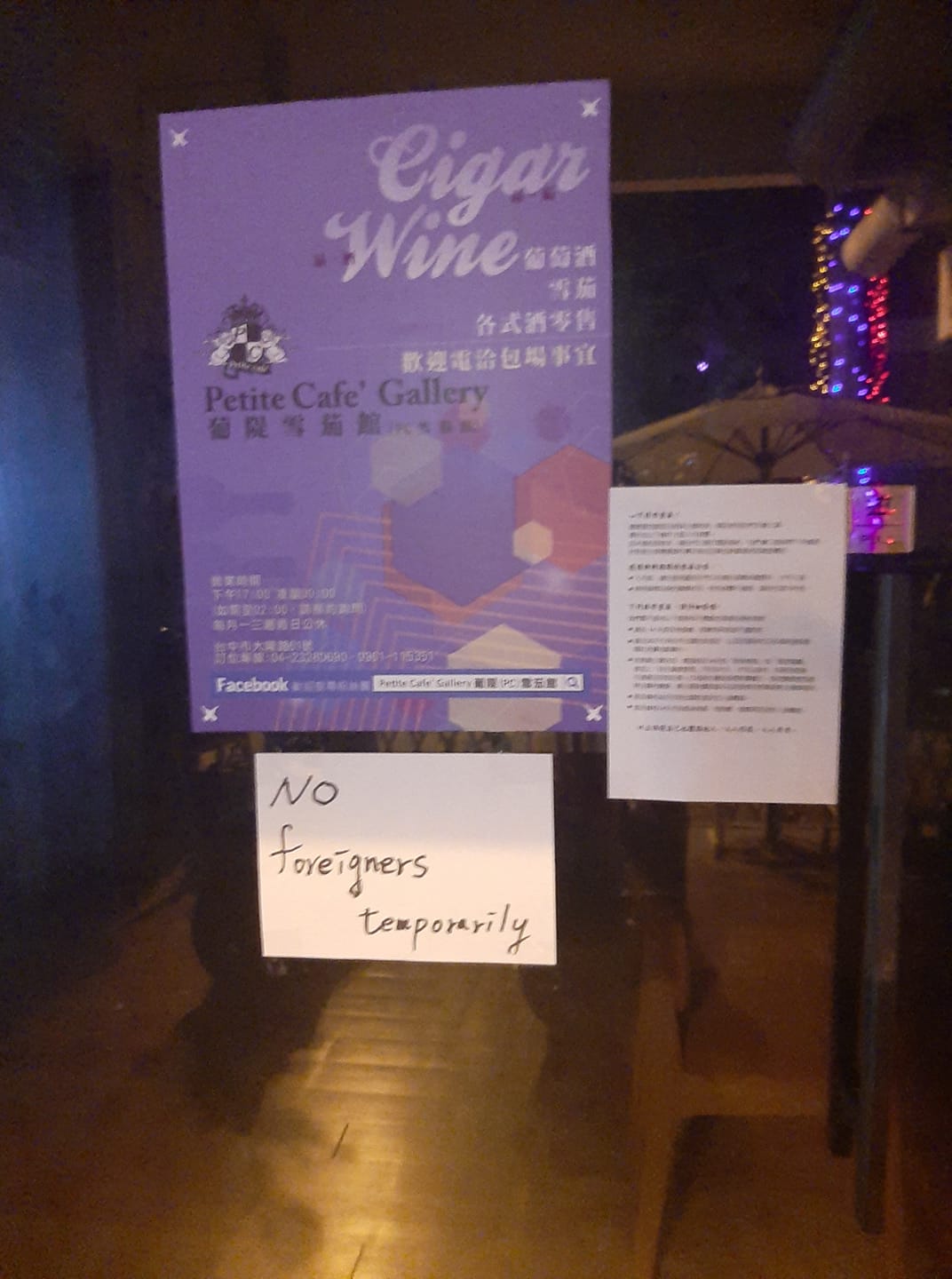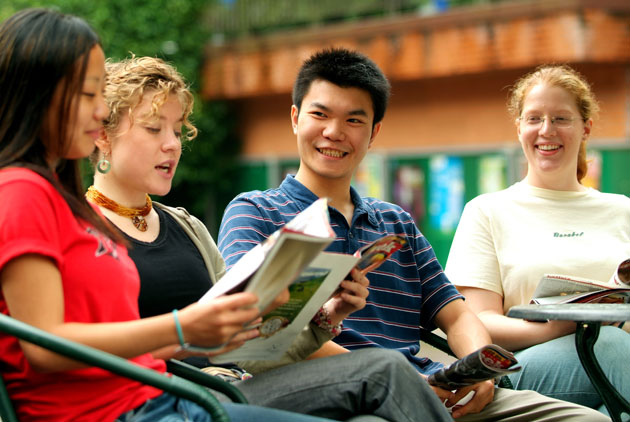Taiwan doesn't really want to be a "bilingual country"

Source:Shutterstock
Taiwan should be better at English, and everything Taiwan can do to engage the international community is obviously wise. But making English an official language and declaring that the country be “bilingual” in a decade isn’t going to work.
Views
Taiwan doesn't really want to be a "bilingual country"
By Adam Hatchweb only
The “bilingual country” initiative first proposed in 2018, aiming to make English an official language and equip Taiwanese people with an undetermined level of English proficiency, has taken some heat and raised a few pointed questions. The most obvious include the fact that Taiwan is already multilingual, and “bilingual” is itself a vague designation. Other writers have written about the identity issues the initiative raises and the lack of clarity of the proposal. However, one important critique of the policy has been left out of the discussion:
Taiwan doesn’t really want to be a bilingual country, at least not in English
Most Taiwanese people don’t want to undergo the process of developing English skills to the point they could be considered “bilingual”. Nor is it clear that Taiwanese society in general wants to bring on the significant changes an English-speaking Taiwan would require. And why should they?
The reasoning behind the initiative is that a “bilingual” Taiwan will better engage the outside world, for both geopolitical and economic benefit. While this is a laudable goal for society at large, it doesn’t offer much motivation for the Taiwanese who actually have to do the learning.
So, for a number of reasons, the “bilingual country” plan has an uphill battle to fight.
Taiwanese people don’t love interacting with foreigners
A common trope is how friendly Taiwanese people are, especially to foreigners. While this is true, it mostly applies to superficial interactions Taiwanese folks have with individuals they perceive to be visitors.
However, as many foreign residents can tell you, not every intercultural interaction is positive. One longtime resident, business owner, and profound Taiwan advocate, Elias Ek, recounts visiting the National Immigration Agency. Applying for a visa extension, he was asked by an immigration official, “Isn’t it time you went home?”
Or, amid the COVID-19 pandemic, Taiwanese seem leery and less friendly to faces perceived to be foreign. Businesses post illegal signs (in English) forbidding non-Taiwanese customers, and foreign residents complain of locals selectively enforcing wearing masks in places where it is not required, even if other locals are walking around maskless.
 (Source: Jose Joaquin R)
(Source: Jose Joaquin R)
These stories are the exception, but they do indicate some ugly underlying attitudes towards non-Taiwanese. While Taiwan is lovely and people usually mean well, there is an atmosphere that foreigners are only welcome to a point.
This does not bode well for a country aiming to be “bilingual” in 10 years.
Inertia in attracting foreign residents
The simple truth is, if Taiwan wants its people to speak English “bilingually”, then locals need to have frequent interaction with people using English. This will require more foreign residents. However, as we just established, Taiwanese are at best ambivalent about a large influx of waiguoren, and thus Taiwan doesn’t do as much as perceived to attract foreign workers, investors, and businesses.
Take the entrepreneur visa program. In its first year, the government approved 26 applications out of 35. The cap is 2,000. Last year was markedly better at 432, but that’s still less than a quarter of the total allowed. If Taiwan were such a great destination for foreign residents, you’d think the program would be a ringing success, but clearly that is not the case.
Starting a business in Taiwan is significantly more difficult for foreign residents, and many foreign-owned businesses in Taiwan are not even registered here due to the archaic and prejudicial regulatory framework. Salaries in Taiwan are low and stagnant, and if companies are given the choice, they will hire local over foreign every time. Even the most common type of English-speaking expat, the humble English teacher, isn’t paid particularly well compared to South Korea, Japan, and China, and these immigrants are usually short-term and face negative stereotypes. The list of minor and and more severe inconveniences goes on.
The government’s thinking on the initiative is backwards; just teaching Taiwanese people more English is not enough to attract the kind of international attention it wants. Rather, having more foreigners in Taiwan, of all backgrounds, who speak English, will give Taiwanese reason to learn the language and engage internationally. As it stands, however, Taiwan is not attracting the number of foreign residents needed to reach a tipping point.
Learning English will be difficult, expensive, and people will resist
Finally, and perhaps most importantly, getting Taiwan to be “bilingual” will be a massive investment in terms of money, time, and effort.
The locals affected - bank workers, government employees, and managers of organizations required to attain English proficiency - see the costs as immediate and large, with the rewards distant and nebulous. Students, teachers, and parents lament greater amounts of homework foisted on kids. And many Taiwanese wonder, “Why do I have to learn a language so different from my own simply to make my country more welcoming to outsiders?”
That’s not a bad question, and it’s one that deserves a practical answer.
If Taiwan does want to be “bilingual”, they need a better plan
Taiwan should be better at English, and everything Taiwan can do to engage the international community is obviously wise. But making English an official language and declaring that the country be “bilingual” in a decade isn’t going to work.
 (Source: CommonWealth Magazine)
(Source: CommonWealth Magazine)
Instead, Taiwan needs to work on attracting more expats, immigrants, and visitors. The government needs to utilize the already enthusiastic foreign community in Taiwan to help bridge the gap. They need to work on creating jobs that expats actually want. And they need to clearly define what “bilingual” will mean, and who will attain that designation.
Moreover, Taiwanese society needs to have some cultural conversations with themselves about whether or not the nation is ready to allow the social change required to be “bilingual” in English. Will Taiwan make dual citizenship more practical? Will people not of Taiwanese descent be accepted as “Taiwanese”? Will foreign business owners and workers be treated equally and fairly, both by the government and by society at large?
Because if Taiwan wants to be an English-speaking country, it needs to welcome English-speaking foreigners into its wider social fabric. It’s not clear that Taiwanese people necessarily want that.
About the author:

Adam Hatch is the founder and director of Englist.com, a writing training and college prep program in Taipei. He is also the founder and editor of Taipei Teen Tribune, an English-language news and opinion blog written entirely by Taiwanese students. Adam has lived in Taipei since 2010 and earned his Master's in Asia-Pacific Studies from National Chengchi University in 2017. He originally comes from Northern California.
Have you read?
♦ Taiwan’s Bilingual Education Needs Critical Thinking
♦ 9m88: Going Back to School to Find Her True Calling
♦ Singapore’s Education Reforms: Learning Is not a Competition
Uploaded by Penny Chiang






